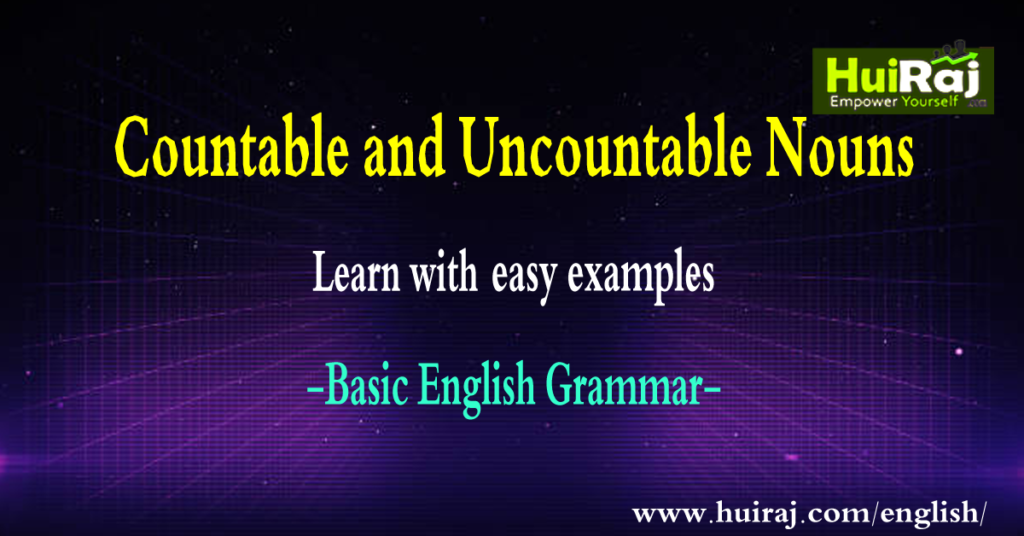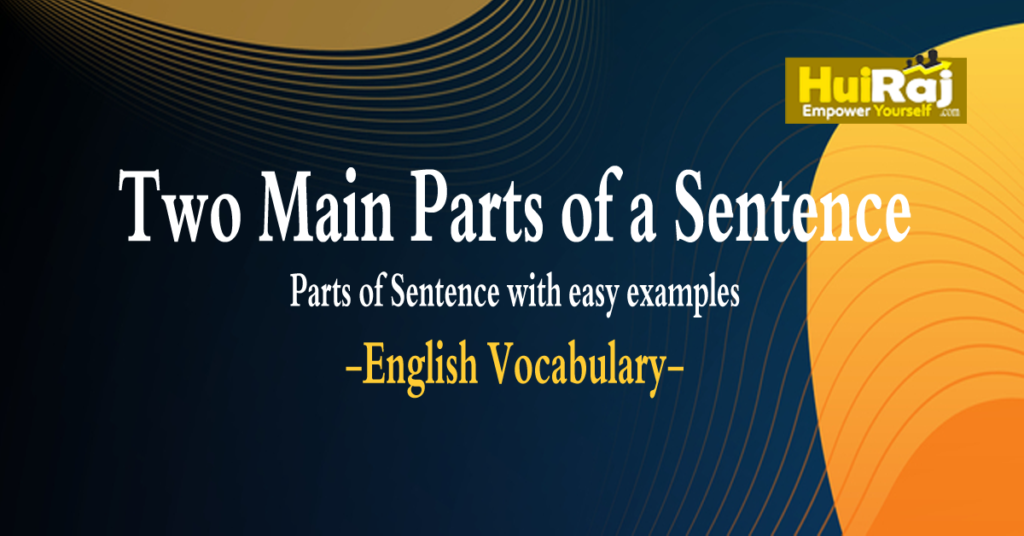Articles, Demonstrative, Numerical words, Possessives, Wh-words, quantity or Amount words, and pre-determiners are knowns as other determiners in English. Let’s learn one by one in detail.
Study the following examples given in the table.
| Class | Words | Examples |
| 1. Articles | a, an, the | A pen is mightier than a sword. A table, an inkpot, the brave, the clever |
| 2. Demonstrative | this, that, these, those | This village is large than that village. This house, these boys, those girls, Two eggs cost. |
| 3. Numerical words: | ||
| (i) Cardinal | One, two, three, four, etc. | This is Rs. 5/- note. |
| (ii) Ordinals | First, second, third etc | The first question was easy. |
| 4. Possessives | My, your, his, her | My book, you sister’s his pens, her shoes etc. |
| 5. Wh-Words | What, which, whose | What book do you want? Which class are you in? Whose book is this? |
| 6. Quantity or Amount words | Some, much, wealth, any, many, several, and plenty | There are some lovely flowers in the garden. They have much wealth. The family has enough food to eat. |
| 7. Pre-determiners | All (of) the, Half (of) the, Both the or both of the | Half (of) the / All of the / these / those/ first two active N.C.C / Oriya cadets deserve rewards. |
Uses of Determiners.
Use -1
- A lot of / lots of people live in the plain.
- The family consumes a lot of rice every month.
We usually use a lot of, lots of, and plenty of with uncountable as well as plural countable nouns in affirmative sentences.
Use -2
Much, many, any, some are usually used in interrogative and negative sentences.
- Do you have much money?
- There aren’t many people at the meeting.
- Is there any problem with the machine?
- If there are any letters for me, can you send them on this address?
- You can catch any bus to Bhubaneswar.
- Do you have some food for me, Mummy?
- Has Soma picked some flowers? (We use some when the expected answer is ‘yes’.
- Is there anyone/anybody at the door? Yes, there is somebody.
(We use any when we don’t know if the answer is ‘yes’ or ‘no’. We use some if the expected answer is ‘yes’.)
Use -3
‘Some” and many are also sometimes used in affirmative sentences.
(i) Some people are always helpful.
(ii) Many citizens live in villages.
Use -4
‘No’ is an Adjective.
‘None‘ is a pronoun.
- No children are allowed to play on the road.
- Nobody attended the camp.
- None of them came forward to help me.
We often use negative words at the beginning of a sentence.
We can also use in the predicate part e.g. “We have no books.
Use -5
Study the Personal Pronouns and their forms given in the table:
| Personal Pronouns | Their objective form | Possessive form/Genitive form |
| I | Me | My/mine |
| We | Us | Our/ours |
| You | You | Your/yours |
| He | him | His/his |
| She | Her | Her/hers |
| They | Them | Their/theirs |
Use -6
Study the table as well as the examples:
The table below projects the use of determiners.
| All+ | 1. (Zero) 2. the 3. My type words | Uncountable Or Plural Countable Noun | All (of) the/this/that money is mine/ yours/hers/theirs. All (of) my/your/her/his/their friends play cricket. |
| 4. This/that | Uncountable | All this/that/food is tasty | |
| 5. These | Plural Countable | All(of) my/your/her/his/their friends play cricket. |
Use -7
Study the structures and the examples given in the table below:
| Both+ | 1. (Zero) 2. the 3. my type words 4. Theses/those | Plural Countable Noun | Examples: Both / the / these/ those rooms are suitable for us. Both (of) my/your/his/her/their brothers are sincere. Both/the/these/ those sisters are mine/yours/his/hers/theirs. |
Use -8
This table shows the uses of half in the structures stated below.
| Half+ | The/this/that/ my-type | Uncountable Noun | (i) Half (of) the/this/that/my/her/his wealth is yours. |
| These/those | Countable Noun | (ii) Half of these/those potatoes are rotten. | |
| a/an | Singular Countable Noun | (iii) She was late by half an hour. |
Use -9
Both………….and
- Both Sabita and Babita attended the birthday party.
- Both Harish and Girish are clever boys.
Use -10(a)
Either…………..or
Neither…………………..nor
(i) He is either a doctor or an engineer.
(ii) He may either stay here or go home.
(iii) It’s neither red nor yellow.
Use -10 (b)
Either = one or the other.
Neither= not one nor the other
(i) Both the sweets are good. You can take either.
Do you want coffee or tea? Either, I don’t mind.
(ii) Here are two students: Either of them can help you.
(iii) There are only two shops here.
Neither of them sells medicine.
Use -11 (a)
Each and every: (a number of persons or things considered individually)
(i) Each child got a prize.
(ii) We met the little children and gave each of them a doll.
We use each/every with a noun.
Use -11(b)
Every= (each counted one by one)
(I) I know every student of this class.
(ii) Every student s was present in the class .
(iii) Teacher: Have you prepared all your lessons Jayadev?
Jayadev: yes, I have prepared every lesson.
(iv) Did you meet all the villages?
Yes, I met every one.
Use -12
all and whole.
(i) All of them are my friends.
(ii) King Harish Chandra gave all he had to sage Biswamitra.
(iii) He read the whole/the whole of the book.
(iv) I have done all work/all of the work.
(v) I have read all night/ all day.
Use -13 (a)
A little and a few (Express some positive sense)
(i) There’s a little water =(some water) in the glass.
(ii) Three’s a little time = (some time) for the meeting.
(iii) There are a few = (limited number) students in the class.
(iv) There are a few books in the bag.
Use -13 (b)
Little and few (express a negative idea)
(i) Let’s hurry! There’s little time =(No time)
(ii) The weather is chilly. The road is deserted.
There are few men (Negative sense) on the road.
Use -14
Wh-words: Whose, what, which etc
(i) Book Seller: What books do you want?
Customer: Which books have you got on English Grammar?
‘What’ refers to an unlimited set or to a wider set but “which” refers to a limited or narrow set, whose books are these here on the table?
Use-15
Uses of Ordinals:
(i) The first three books are short stories.
(ii) I arrived first. The next to arrive was Monish.
(iii) The last one is a good book.
(iv) it is the fourth book I have written.
The ordinals and cardinals go with nouns and pronouns.
Use -16
Adjectives are also used in Noun Phrases.
(i) We have some useful books.
(ii) She is a clever little girl.
(iii) We met a few learned men.
The italicized words are adjectives. You will learn about the sequence of adjectives later.
Exercise for Other determinants
Exercise-1
Complete the sentences using much, many, a lot of , lots of , few, a few, little, a little.
- There are …………….. people at the meeting.
- We haven’t …………….. wealth.
- There are drops of water in the glass.
- There is …………….. water in the glass. (Almost no water)
- Aren’t there …………….. students in the class?
- Are there …………….. people at the meeting?
- There isn’t …………….. traffic on the road.
- We have heard …………….. stones. (limited stories)
- The meeting is at 5 pm. Now it is 4.57 Pm. There is …………….. time for the meeting.
- Gorachand has …………….. plans to execute.
Exercise-2
Use a/an/the/some/any/anyone/a few/ a lot of to fill in the blanks. There first one has been done for you.
- What’s the matter with you, Leena? I have …………….. headache.
- Don’t believe Ram. He is …………….. lair.
- I am going shopping. I am going to buy …………….. articles.
- I have seen …………….. Europeans on the seashore at Puri.
- Would you like to see …………….. doctor?
- There are …………….. flowers in the garden.
- Are there …………….. eggs in the basket?
- it is sad that we haven’t got …………….. bicycle.
- is there …………….. milk /cheese in the pet? You usually keep it for me.
- Has he …………….. trousers?
Exercise-3
Make sentences from the table:
| There is | Some No Much A little | More | Milk Tea Coffee Water | In the storeroom. |
| We have | A lot of A large quantity of Some amount of Plenty of Not enough | Dal Bread Sugar Meat Salt | In the storeroom. |
Exercise-4
Now rewrite the sentences using the expressions given in brackets.
( a lot of/ few / a few/ little / a little/ many / much)
- …………….. friends come to attend my birthday party.
- There aren’t …………….. wealthy men in this locality.
- There has been …………….. rain these days. (no rain)
- He doesn’t take …………….. sugar in his tea.
- He has read …………….. books.
- …………….. young men want to be film stars but …………….. succeed.
- The operation is at 2 pm. Now it is 1.45.
- We have …………….. time to wait for the operation.
- He is very lazy. He has …………….. hope of success.
- He is not popular. He has …………….. Friends (Negative sense)
- When did you see her last? …………….. days ago.

